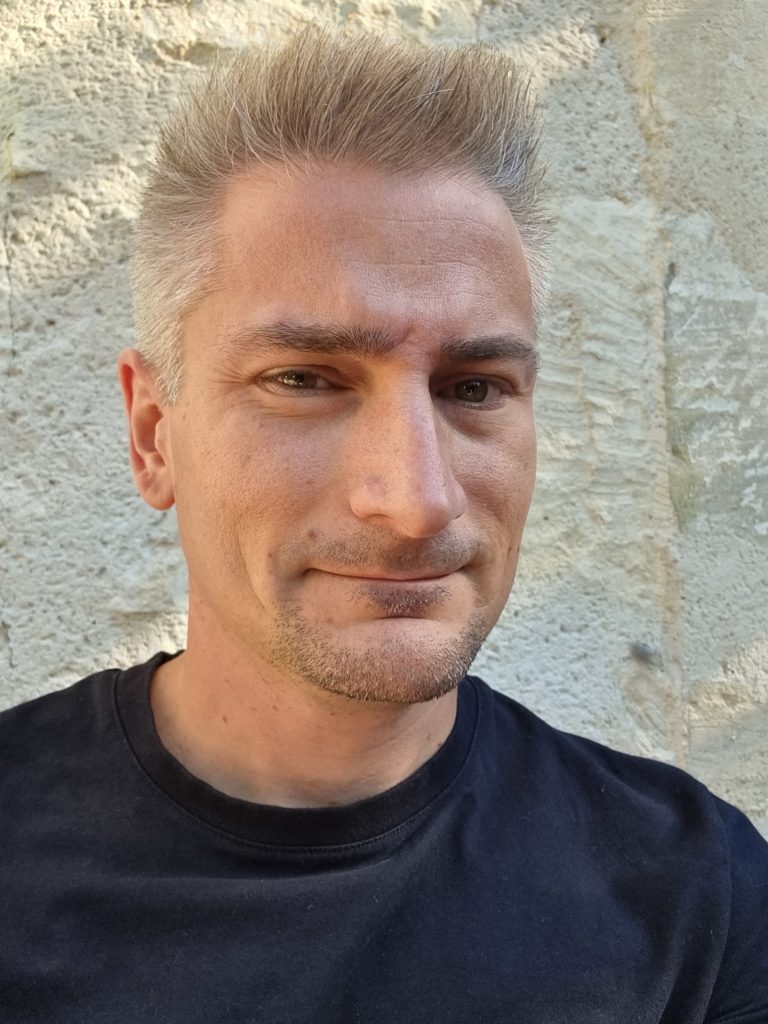by Chris Moyer
Not fully in France. Not in America,
not by the Seine, not by the Susquehanna.
My belonging is mixed-up, Sam, you see.
I do not belong fully here or there.
I do not fully belong anywhere!
If you are a third culture kid like me, you may read the word belonging and feel that it is an ephemeral or even impossible concept to grasp. Endless strings of transitions leave many TCKs wondering how they could ever find a stable sense of belonging. In many ways, the TCK life feels like my adapted stanza (above) from Dr. Seuss’s Green Eggs and Ham.
I struggled most intensely with my sense of belonging when I was a teenager and young adult because I experienced an intense push and pull between countries and continents. Each year—from ninth grade through my first year of college—I faced a new phase of starting over. In ninth grade I had my last year in French schools. Then, in tenth grade, I shipped off (of my own volition) to Black Forest Academy (BFA) in Germany. Next, I had a one-year stop in America (not of my own volition) for eleventh grade. Then once again, I hopped the Atlantic to return to BFA for my senior year. Finally, finally, I moved back to the States for college.
As I typed the above paragraph, I could feel my nerves amp up, my palms get sweaty, and butterflies begin to flutter in my stomach. Even though the last of those transitions took place over twenty years ago, the overwhelming sense of dread that accompanies having to start over is a feeling I can never quite shake. Yes, I have processed—and even learned to embrace—what took place during those years. But I can still vividly recall my desperate longing for stability and a true sense of belonging that my heart ached to possess at that time in my life.
While I was blessed to develop meaningful relationships with many special people during those years—people I never would have met had I stayed in a single, stable environment—I can still keenly feel the tension that constantly pushed and pulled at me. The tension of wanting to fully fit in with those around me, all the while knowing deep inside that I was inherently different from both my French and American peers. My desire to belong remained just outside of my grasp because I was stuck in the perpetual reality of being an outsider in both of my “worlds.”
When living as a teenager in France, many of my classmates thought it was “cool” that I was American. But their understanding was based on the American shows they watched and the musicians they listened to, rather than inquiring what it was like for me personally to be a US citizen. Instead of questions, I frequently heard comments such as, “You are so lucky to be American!” and “I don’t understand why you would leave the US to live here!” And, just in case there was any doubt that I was not a local, my peers even nicknamed me “Made in USA.” In some ways I liked that I had something that other kids wanted, and yet I struggled with being different. In my heart I simply wanted what most young people desire: to be like my friends and not stand out.
When in America I looked and sounded like my peers, which on the surface felt good. But on the inside, I felt like a zebra running among horses. Zebras sound like horses when they run, and besides their black and white stripes, they even look like horses. But zebras and horses are different species. Try as I might, I could not ignore or fully hide my stripes. I did what I could to blend in like a chameleon, but just as zebras cannot be tamed, so I could not suppress my multicultural identity.
On the inside, I felt like a zebra running among horses.
At BFA, we were ALL zebras! Our base colors (passport cultures) may have been different, as were our stripes (our host cultures), but within this community I finally found my “herd.” This offered me the sense of belonging I had been looking and longing to find for so long! But, before I knew it, graduation came along and we all went our separate ways…many of us once again living as zebras among horses.
TCKs do not have the power to change what makes them different from their peers in either their passport or their host countries. And now, as I parent three TCKs of my own, I want to help my children successfully navigate the treacherous path of belonging. While one side of the TCK “coin” represents challenges, the flip side to this is an intense richness that can only be found in this reality. Together we will celebrate the beauty and accept the losses that come along with the multicultural life they did not personally choose for themselves.
It is my desire to lead my own TCK children to learn, as I did, that you do not need to fully belong to fully engage with those around you. No, you won’t ever “belong” to just one group or culture. And while that can be hard, it is OK. Understanding, acknowledging, grieving, and celebrating are all joined together to create the jumbled richness that is multi-cultural living. While I always felt different from my monocultural peers, coworkers, and family, I grew to accept these differences while learning to belong; at least mostly…. (I highly recommend watching this short video by TCK Michèle Phoenix on this subject of belonging; while she is speaking primarily to missionary kids—MKs—her insights apply generally to TCKs.)
Below are three things that you can do to help your TCK(s) learn to mostly belong wherever they may be (this is not an exhaustive list).
You do not need to fully belong to fully engage with those around you.
- Process with them their sense of belonging.
For older TCKs, asking them reflective questions can draw out what is going on beneath the surface of their desire to belong:
- Where do you feel you most belong?
- What makes you feel like you belong there or with those people?
- What it is like for you when you feel like an outsider?
- What do you do when you feel like an outsider? (Look for specific behavior that helps or inhibits their sense of belonging.)
For younger TCKs, you can still try to ask reflective questions like the ones above, or you can read a book like Swirly, which will draw out feelings and desires through story.
2. Help them make decisions that grow a healthy sense of belonging (be sure to process #1 with your kids before moving to #2).
As Michèle Phoenix says in her video, some TCKs will do whatever they can to blend in. They will forsake their heritage for the sake of belonging. While TCKs need to grieve what they have left behind, suppressing where they come from will create additional challenges of unresolved grief along the way.
Because of the mobile nature of their parents’ employment, some TCKs will experience short transition periods such as the one I had in America for my eleventh grade year. I did not want to be in America that year, and my attitude and behavior clearly matched my disposition. It can be tempting for TCKs, when they know they will only be somewhere for a short period of time, to stay withdrawn and be unwilling to invest much into their momentary place of residence. This was my approach to my stop-gap year in America for two reasons: (1) I longed to be back with my friends at BFA; and (2) I knew I was going to be leaving and did not want to get close to people for fear of how hard the goodbyes might be.
Whether TCKs are in a short transitional period or whether they are in a more permanent phase of life, it is important to help them make conscious decisions that lead them to connect with others. Understandably, it is hard to move toward others when you feel like a cultural outsider, when you are in the middle of grief, or when you’re just plain tired of putting yourself “out there” yet again. But, relationships with peers are a crucial first step to a growing sense of belonging. Below are some ideas (again, not exhaustive) of how to help your TCK kids connect with other kids:
- Encourage them to invite a classmate to your home to play. If your TCK does not want to risk rejection, be the one to take initiative and invite their classmate’s family over for an afternoon snack or a meal.
- When possible, have your TCK get involved in something they love to do. In our family we chose to forego extra-curricular activities during our first year in France because we thought the language barrier would be more stressful than the activity would be beneficial. However, after our initial “waiting period,” we’ve witnessed our three kids blossoming more and more since beginning their hobbies here.
- If your TCK(s) goes to local schools, check in with them regularly about how well (or not) they are connecting with their classmates. Some kids naturally jump into new settings with both feet! But others may be shy and insecure about finding their “place,” as we found was the case with one of our children, who needed regular encouragement to move toward others. With time and some gentle nudges, this kid has really grown in their ability to initiate with others, and as a result, their sense of belonging has been strengthened.
3. When possible, gather with other expat families.
There is a good chance that your TCK(s) will feel their greatest sense of belonging when they find themselves with other TCKs. They will likely no longer feel like a zebra running among horses when they come together. There is a comfort, often an unspoken one, through a mutual understanding that comes with being alongside others from their “herd.” In light of this, make every effort to meet up with other expat families when possible.
When it is not possible to meet in person, whether because of where you live or because of the current global pandemic, your TCK(s) may enjoy having online gatherings with TCK peers. Our youngest loves to connect with a TCK friend in Eastern Europe and do a “show and tell” with him. Our older kids simply enjoy sitting across the screen and chatting with their TCK friends.
Lastly, let me encourage you to find conferences and/or retreats to attend with other expat families. There are some great events put on by educational service organizations, mission organizations, and others that will be like a breath of fresh air for you and your TCK(s). These types of events were some of the biggest highlights of my childhood, and I know my kids have loved the handful of retreats they have attended with their TCK peers.
In the end, my hope is that we can see our kids mostly belong and that the adapted stanza from Green Eggs and Ham changes to:
Mostly in France. And in America.
By the Seine and the Susquehanna.
I belong mostly, Sam, you see.
I belong mostly here and there.
I belong mostly anywhere.
https://tckonnective.wordpress.com/2020/11/23/neither-here-nor-there-i-dont-belong-anywhere/ *First published on his blog, Nov. 23, 2020

Chris grew up as a Third Culture Kid for ten years in France and a couple of years in Germany. In 2018, after spending nineteen years in the States he moved back to France with his family to start his work with the Global Member Care Team with the mission organization World Team. Chris loves to travel, running, and playing and coaching basketball. You can read his blog at: tckonnective.com












